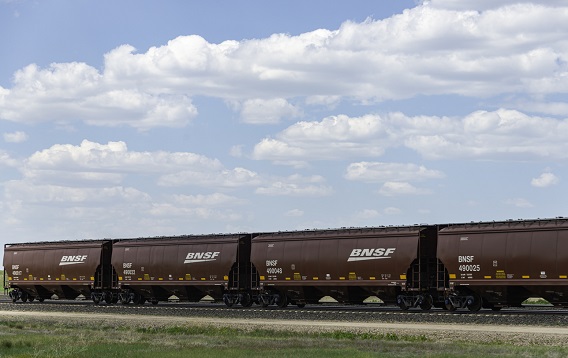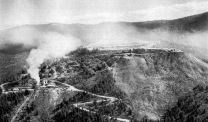Trial Underway Against Warren Buffett’s Railway Company
Legislation & LitigationWritten by Travis Rodgers | Edited By Amy Edel

A trial has begun over BNSF Railway’s transporting of asbestos-contaminated vermiculite from mines in Libby, Montana that closed in 1990. Investor and businessman Warren Buffett’s Berkshire Hathaway Inc. purchased the railway in 2010. BNSF is accused of negligence and wrongful death.
The suit claims the railway is responsible for failing to control asbestos-contaminated dust from Libby vermiculite stored in a downtown railyard and then transported through the town to manufacturing plants across the country. BNSF denies any responsibility for asbestos contamination of Libby, according to court filings.
The estates of Thomas Wells and Joyce Walder filed a wrongful death lawsuit against BNSF in 2021. Both Wells and Walder were diagnosed with mesothelioma. The primary cause of mesothelioma is asbestos exposure.
Wells died in March 2020 and Walder died in October 2020. Both believed their asbestos exposure occurred while they were in the Libby area. Their suit is one of hundreds of lawsuits filed against BNSF Railway in connection to asbestos in Libby.
Arguments Over BNSF’s Responsibility
The railway claims its obligation to ship goods to customers exempts it from any liability. However, plaintiffs argue that vermiculite storage in the railyard means the company isn’t exempt.
The trial comes more than 20 years after federal authorities first responded to reports of asbestos-related diseases and deaths in Libby. Hundreds of people have died and 3,000 have been sickened according to health officials.
In a separate case, Montana’s Supreme Court ruled that BNSF and its predecessors were more involved in the mining process than just shipping vermiculite. The railway has settled previous lawsuits for undisclosed amounts. The next trial against BNSF over the death of a Libby resident is set to start in federal court in May 2024.
“At some point, probably everybody got exposed to it,” Paul Resch told the Associated Press about asbestos-tainted vermiculite in Libby. “There were piles of it along the railroad tracks, you would get clouds of dust blowing around downtown.”
Resch lived in Libby as a child. The 61 year-old noted he was diagnosed with an asbestos-related illness that severely scarred his left lung.
Libby’s History With Asbestos
Libby is the site of one of the worst human-caused environmental disasters in American history. The small town was once home to vermiculite ore mining said to have produced 80% of the world’s vermiculite. Both vermiculite and asbestos are naturally occurring minerals and when vermiculite is mined, it can become contaminated with asbestos.
W.R. Grace took over operation of the Libby mines in 1963 and was aware of the health risks at the time, but didn’t warn the public or workers. The company filed for bankruptcy in 2001 and established a $1.8 billion asbestos trust fund to settle future cases. The company also paid about $270 million to government agencies for environmental damages and cleanup.
The state of Montana was also found to be at fault for failing to warn Libby residents about asbestos exposure. It paid settlements totaling $68 million to about 2,000 plaintiffs.
In 2009 the U.S. Environmental Protection Agency declared Libby a superfund site. More than $600 million in federal funds was spent on decontamination efforts. The EPA even provided additional financial assistance to residents for health care costs. At least 1 in 10 people in Libby currently have an asbestos-related illness, according to the Center for Asbestos Related Disease. Exposure to asbestos can cause mesothelioma, asbestosis and a number of other cancers.






